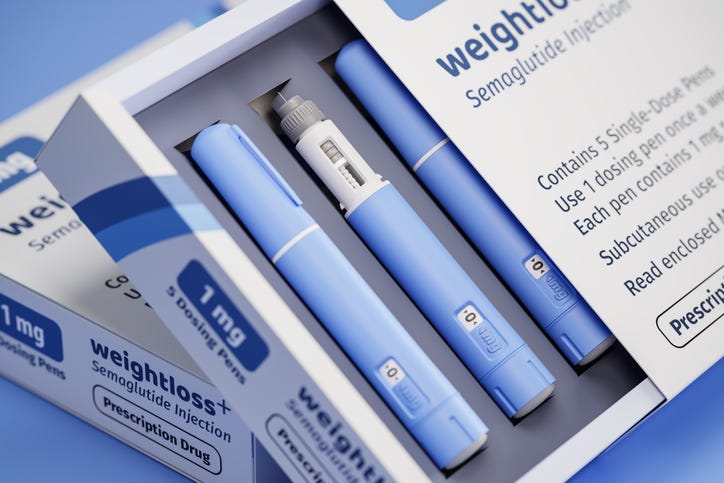
Wasitlines across America are shrinking as more and more people turn to weight loss drugs to help them shed pounds, which is starting to take a bite out of restaurant profits.
Drugs like Ozempic, Wegovy and Mounjaro contain the active ingredient semaglutide, which suppresses appetite and prolongs fullness by mimicking the role of a natural hormone called GLP-1.
Produced in the gut, GLP-1 helps curb hunger and slows the movement of food from the stomach into the small intestine, according to the Mayo Clinic. While GLP-1 only sticks around in the blood for a few minutes, semaglutide lasts for days -- which why people using the drug quickly lose weight.
Morgan Stanley Research analysts estimate that 31.5 million people, or 9% of the U.S. population, will be taking these drugs by 2035, per CNBC.
With so many people eating less food overall and making more nutritious choices when they do eat, restaurants are seeing a dip in profits and some are being exposed for unhealthy menus as consumer habits change.
"There is growing evidence that the drugs have a meaningful impact on consumer behavior and spending on groceries and restaurants," Morgan Stanley analysts said in a recent survey shared by CNBC. "All of these dynamics suggest GLP-1 drugs' impact across consumer sectors is set to increase as drug uptake grows and the drugs reshape behavior among a demographic group that represents a disproportionate share of calorie consumption."
According to the report, 63% of people on weight loss drugs said they are spending less on restaurants since starting treatment. Another 61% have cut back on deliveries or takeout from restaurants. At the same time, 23% are spending more at the grocery store.
While the shift in spending isn't going to shut down the restaurant industry, it will force businesses to pivot in order to keep capturing consumer dollars. The survey found that many people who are still eating at restaurants while using weight loss drugs have changed the kinds of meals they order to focus on healthier choices.
The report noted that "more indulgent" fast-casual restaurants could face the biggest hurdle as use of these drugs increases -- including Jack in the Box, Wendy's, Wingstop, Shake Shack and Portillos.
On the other hand, "healthier" fast-casual restaurants and coffee shops are "better positioned" to handle changing consumer habits -- such as Cava, Chipotle, Sweetgreen and Starbucks, per the report.
